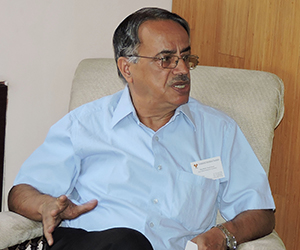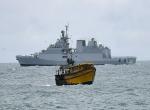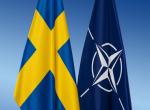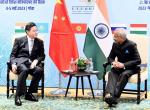The Shanghai Cooperation Organisation’s twelfth Summit held at Beijing in first week of June this year deliberated upon Afghanistan at length. Even though Afghanistan has not been either a member or observer of this group President Karzai has been attending the SCO Summits regularly as a guest since 2004. At last, Afghanistan has now been granted the status of an observer. Attending the 2005 SCO Summit in Beijing and underscoring the geo-strategic relevance of Afghanistan as an important link between Central Asia and South Asia, Karzai had then observed that
“Afghanistan belongs to the region where also lies the SCO. Afghanistan has no other ways, and can't be outside the region.”
Though a SCO-Afghanistan Contact Group was formed in 2005, it was only in 2009 that a plan of action for combating terrorism, illicit drug trafficking and organized crime was signed. On ground there is little evidence to show that this group has made any substantial contribution towards achieving their stated goals. Though it can be said that the SCO members have carried out some counter-narcotics and counter-terrorism exercises amongst themselves.
In 2009 Russia had hosted the SCO Summit at Yekaterinburg with much fanfare. Among others Russia was able get representatives from the U.S. and NATO also. 2009 was also the year when President Obama had taken over and was in the process of resetting its relationship with Russia. Obama had unveiled his new Afghan strategy and was counting on Russia and Central Asian countries for providing transit routes to Afghanistan. In fact the US representative Mr. Patrick Moon had commended the SCO’s joint action plan on Afghanistan. On the other hand Russia’s Foreign Minister Sergei Lavrov had underlined Russia’s concerns by calling on the U.S.-NATO coalition forces to step up anti-narcotics efforts. Currently, even though the US and NATO forces use supply lines to Afghanistan through Russia and Central Asian countries, differences between the US-NATO combine and Russia continue to exist. There is also a view that SCO has not been given due recognition by the US and the West.
Last year in Astana Summit, Karzai indicating his objective of joining SCO had said that Afghanistan “expects real cooperation with the SCO countries in combating the threat of terrorism and trafficking in arms and drugs.” He was looking forward to SCO members for investments in his country for exploitation of mineral resources. Kazakhstan President Nursultan Nazarbayev, the host, observed “The SCO believes with good reason that Afghanistan holds the key to the future of the entire region.”
It is quite evident that the most important concerns SCO are the unstable situation in Afghanistan that has given rise to drug trafficking and the threats of radicalism and terrorism emanating from Afghanistan. In all the SCO Summits held so far counter-narcotics and anti-terrorism discussions have received priority even while economic and other issues find their due place. China, which is one of the major players in the SCO (the other being Russia) has a standard formulation of the threats in the region and describes them as the three evils of “terrorism, extremism and separatism”. Of late, the Chinese are increasingly feeling concerned about the rise in drug trafficking to China from Afghanistan through Central Asia. Russia is the worst sufferer from the menace of Afghan origin drugs. There have been reports that almost 30,000 Russians die annually due to drug abuse. This is more than twice the number of Russian soldiers (around 14,500 or so according to one estimate) that were killed in a decade of their adventure in Afghanistan.
Again this year the SCO summit has stressed on stepping up bilateral and multilateral cooperation to jointly combat terrorism, separatism and extremism, battle illicit trafficking in drugs and weapons and other transnational criminal activities, address illegal migration and meet the new threats and challenges in other security fields.
As for as Afghanistan is concerned; SCO’s twelfth Summit has supported Afghanistan’s effort to build an independent, neutral, peaceful, prosperous country free of terrorism and drug-related crimes. They are of the view that the national reconciliation process in Afghanistan should be Afghan-led and Afghan-owned. The SCO also supported the United Nations' leading role in coordinating the international efforts on the issue of Afghanistan. Support for economic reconstruction of Afghanistan was also promised though not much was spelt out. These are also the formulations which were mentioned during the international conference on Afghanistan in Istanbul in November 2011 and endorsed in the Bonn Conference in the following month. The Istanbul Conference was also meant to find a regional solution to Afghanistan. Though many declarations were made in the conference yet no mechanisms for implementation were instituted. The same can be said about the 12th SCO Summit’s declarations about Afghanistan.
Thus, even while the stated goals of the international community for Afghanistan, at the broader plane are the same different players are adopting different strategies dominated by their respective interests to realize their own objectives. Therefore, the Afghan puzzle has increasingly become very complicated with no signs of an early solution.
One of the important highlights of the 12th SCO Summit was signing of a China- Afghanistan Strategic and Cooperative Partnership agreement on the sidelines of the conference. Even though the text of the declaration covered very broadly the usual areas of cooperation yet there were some specifics which would be beneficial to Afghanistan. The Chinese government will provide a grant of 150 million RMB (equivalent to 23.71 million US dollars) in 2012. However, this is just a piffling sum coming from a rising China that is flush with funds. China stands to gain many times more from its investments in Afghanistan’s natural resource sector. Further, as a sop, some vacancies and scholarships for training of Afghan technical personnel and other students in China have been increased.
According to the partnership agreement the overall cooperation between the two sides would be in areas of political, economic, cultural and security fields in addition to regional and international affairs. They would not allow their respective territory to be used for any activities targeted against the other side. Afghanistan promised that ‘It will take tangible measures to enhance the security of Chinese institutions and people in Afghanistan’. Both sides agreed to continually strengthen their cooperation in such fields as resources and energy development, infrastructure development, engineering and agriculture. The Chinese side reaffirmed its support for the peaceful reconstruction process in Afghanistan. This rhymes very well with China’s plans of exploiting Afghanistan’s mineral reserves and development of connected infrastructure for evacuating them to China.
However, one of the curious clauses of the abovementioned agreement was that China and Afghanistan ‘will further the coordination and cooperation in SARRC’. Though this clause appears to be innocuous it has implications for India. China is an observer in SAARC while Afghanistan is a full member. Some analysts have opined that China is looking for a full membership of SAARC which for obvious geopolitical reasons is not favoured by India. India has applied for a full membership of the SCO and there is a view that China could be looking for a quid pro quo. Therefore, the need on the part of China to get Afghanistan on its side.
China has also averred to play a bigger role in Afghanistan post 2014 withdrawal by the NATO forces. On the sidelines of the Summit President Hu Jintao stated that “We will continue to manage regional affairs by ourselves, be on guard against external turbulence and play a bigger role in Afghanistan’s peaceful reconstruction”. Hu Jintao and Chinese officials were at pains to emphasise that SCO is not a military block like the NATO.
India, which applied for a full membership of the SCO last year has been supporting Afghanistan’s case for entering the SCO and has also favoured SCO performing a role in the stabilization of Afghanistan. India's External Affairs Minister S.M. Krishna had observed during the 11th Summit at Astana that SCO organization "could play an important role in stabilizing Afghanistan after the drawdown of foreign troops." During this year’s Summit he opined that “The SCO provides a promising alternative regional platform to discuss the rapidly changing Afghan situation”. He added that member grouping’s economic projects could be “a meaningful additional effort for Afghanistan’s reconstruction”. He also pitched in for making India a full member of the SCO.
Finding a regional solution to Afghan imbroglio was one of the important pillars of Obama’s strategy of 2009. Yet, nothing substantial has been done by the U.S. to move towards that goal. Whether it is the Istanbul process, Bonn Conference or the SCO’s summits many declarations have been made yet implementation of the same has not come about. A number of players in Afghanistan have competing strategies which leads to generating more friction rather than bringing about a positive outcome in Afghanistan. All the stakeholders in Afghanistan have to reconcile in order to bring about a positive outcome. This can, perhaps, be better done under the aegis of the UN.
Published Date: 18th June 2012










Post new comment